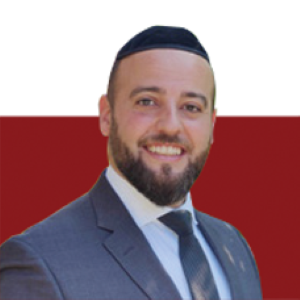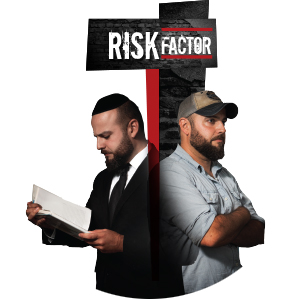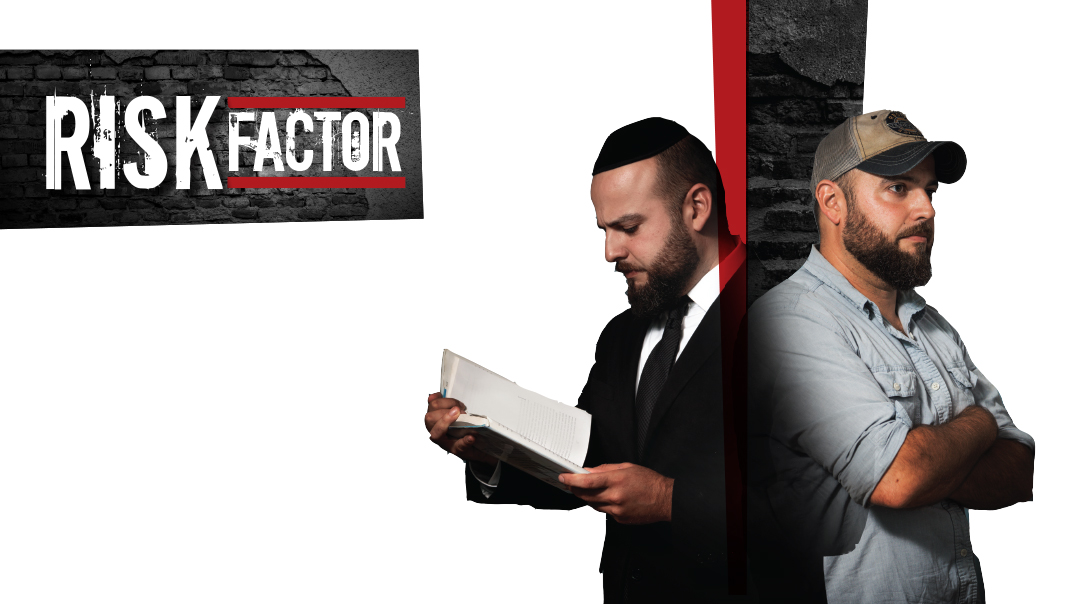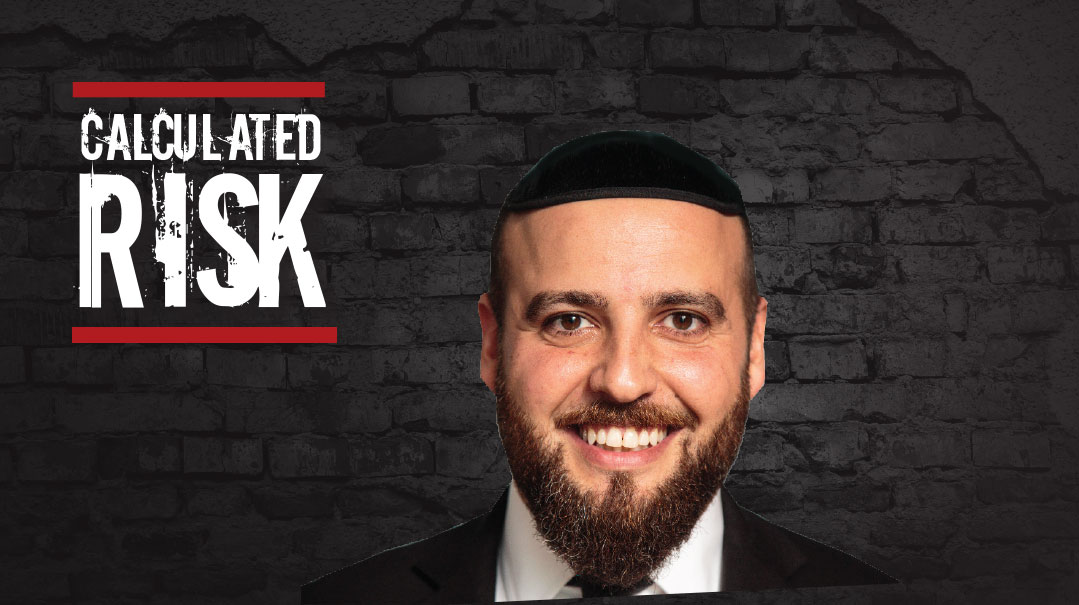Over Coffee

“You’re kidding. He overdosed and his wife left him and he still won’t quit?"
I

went to high school with Chaim and Tzvi, twin brothers I was very close to. Whenever I get back to New York we always meet for coffee.
On this trip I was dealing with a very complex case, and I was emotionally and physically drained. Tzvi wasn’t available, but Chaim said he could meet me for at 10 a.m. That was fine, because it was really Chaim I needed to talk to.
I ordered Jamaican Blue Mountain, black. Chaim grimaced. “How do you drink it like that? At least put in some sugar.”
“I drink coffee like I work with people,” I said. “No cream, no sugar, and if the only option is instant, I’ll wait for the real thing.”
Chaim took his drink over to the milk and sugar station. I sat down at an empty booth, watching him water down his coffee.
“So what brings you to New York this time?” Chaim asked as he sat down across from me.
“I have an intervention, and I’m also checking in with an old client. He’s a recovering addict, four years sober, getting his life back together slowly.” I sipped the coffee, hot and bitter. “Crazy, the paths people choose in life.”
“Even crazier how our paths choose us,” Chaim said.
Whenever I talk to Chaim it sounds like this; he’s the guy I rely on to make sense of things.
“But wait,” Chaim said. “Why does he still need you if he’s already clean for four years?”
“I promised him.” I looked across at Chaim. “When I started working with him, I told him I would stay with him as long as he needed me.”
“Four years sober sounds like you kept your promise.”
“He’s going to start sponsoring someone now. He’ll need my help in the beginning.”
Chaim nodded and sipped his drink. “So now that this guy is clean, does that mean he can never drink either?”
“Well, there are different schools of thought about that. But everyone agrees that it’s a journey. You have to take it one step at a time.”
“Poor guy.”
“Not really,” I said. “Everyone has stuff they need to work out. Addiction isn’t really that different. The problem is when people wait too long before getting help.”
“Isn’t it your job to make sure they don’t wait too long?”
I shook my head. “I can’t help anyone unless they ask me for help. That usually doesn’t happen until things go too far.”
“What’s too far?”
“You really want to talk about work now?” I asked him. “Tell me about your kids.”
We traded pictures of our kids and talked about how crazy it was to be a father.
“Yeah, but it’s the greatest experience ever,” Chaim said. “I don’t get how my father could have abandoned us like he did. I couldn’t live without my kids.”
“It’s funny you say that,” I said. “This client I’m going to see today said the same line. Literally word-for-word.”
“Really? Weird,” Chaim said
“No, the weird thing was that he did abandon his kids.”
“Who? The client?”
“Let’s call him Shalom. He didn’t physically leave. But his addiction robbed his kids of their father, and he didn’t realize it until it was too late.” I paused. “Sorry that I keep going back to work. I guess it’s weighing on me.”
Chaim smiled. “You need to talk about it. Go on.”
He knew me too well. The situation with “Shalom” was weighing on me terribly. It wasn’t a new situation — I’d seen clients like this countless times before — but this one was different. It was too close to home. I couldn’t get Shalom’s kids out of my head.
“Okay,” I said, grabbing the opportunity to talk, “this is Shalom: He has everything — great marriage, great kids, great job. He had a rough past but he could have gone to therapy and worked through it. Instead he bottled it all up. When he gets stressed out he starts taking unprescribed meds to ‘take the edge off.’ Eventually he’s taking a lot… until he can’t hide it anymore, and his wife threatens to leave if he doesn’t stop. One day he overdoses, lands in the hospital, comes home to find his house empty. His wife says either get help or give me a get.”
“Ouch,” said Chaim.
“Yeah. His mother called me to get involved. It’s hardly ever the addicts themselves who reach out,” I add.
“So you talked to this guy and convinced him to go clean?”
“Trust me, everyone tried talking to him. No one could get through to him.”
“Didn’t they explain…”
“Sure they explained. But logic doesn’t speak to emotion. I tried, too, but he just wanted me to tell his wife that it was all a mistake, and he doesn’t have a drug problem,” I said.
Chaim laughed aloud. “You’re kidding. He overdosed and his wife left him and he still won’t quit? Wow.” He fell silent, with that look on his face he gets when he’s about to come out with some deep insight.
Come on, Chaim. You always get me. I need you now.
“I guess we can laugh and shake our heads,” Chaim said slowly, “but don’t we all do that?”
“Do what?”
“Try to hold onto our habits. In one way or another. We think everyone is overreacting, and we ignore the people we love just to protect ourselves.” He thought about it some more. “There’s a little ‘Shalom’ in all of us.”
Thank you. That was exactly what I needed to hear.
Chaim finished the last of his coffee and stood up. I walked him out of the coffee shop and two doors down to his office.
“Out of curiosity,” Chaim said, “what did you say to him to change his mind?”
“I didn’t have to say anything. He didn’t see his kids for five months until he proved to the courts that he was clean. But even that was a blessing, sort of, since now he gets other people to get clean before they go too far.”
“If he’s doing so well, why does he need you now?” Chaim asked
“He doesn’t. I actually need his help with something.”
We stopped in front of Chaim’s office. “Thanks,” I told him. “You gave me a lot to think about. I don’t know if I would be able to catch myself early enough. I hope I would.”
“Yeah,” he said. “It’s something I needed to hear too, to be honest.”
When Chaim had disappeared into his office I went back to the coffee shop. I walked over to the milk and sugar station and peeked inside the garbage can. I knew it would be there. I just wanted to see it with my own eyes.
It was there — two of those mini airplane-size bottles of vodka.
I texted Tzvi as I walked out: It’s done. I really hope it helps.
It was unorthodox, but this was our last hope. If we could succeed in planting a seed when Chaim’s guard was down, maybe he’d come around “on his own.”
Let me know how your talk goes, I typed, and I’ll have my guy ready to meet with him.
Then I called Shalom.
“Hey, Yossi,” he said. “How’s it going? We still on for coffee this afternoon?”
“We’re on,” I said.
“Your friend gonna join?”
I thought about the look on Chaim’s face when he talked about his kids — that fierce mix of love and commitment. “I really hope so.”
Identifying details have been changed to protect the privacy of patients, their families, and all other parties.
Rabbi Yossi Bensoussan serves as mashgiach ruchani at Yeshiva High School of Cleveland. He is a Certified Alcohol and Substance Abuse Counselor (CASAC) who currently maintains a private practice, and does motivational speaking and community education on addiction all over the US and Israel.
(Originally featured in Mishpacha, Issue 793)
Oops! We could not locate your form.



